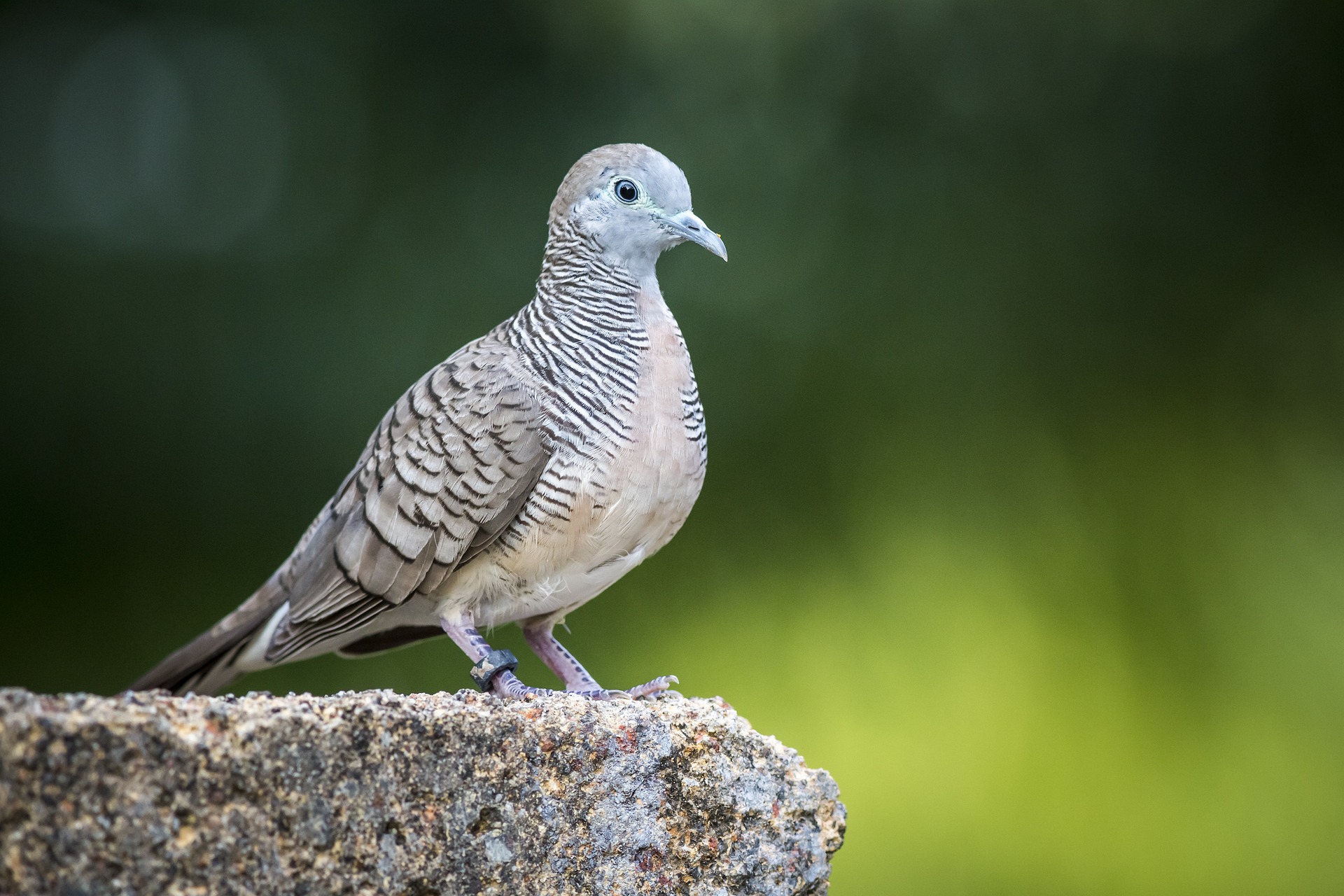The Chinese Spotted Dove (Spilopelia chinensis) is a bird species native to East Asia, including China, Taiwan, and parts of Southeast Asia. Here are some key features and characteristics of the Chinese Spotted Dove:
- Appearance: Chinese Spotted Doves are medium-sized doves with a distinctive spotted plumage pattern. They have a pale grayish-brown body with darker spots or markings scattered across their wings and back, giving them a speckled appearance. The underparts are generally lighter in color, often with a pinkish hue on the breast. They have red legs and a black bill.
- Distribution: Chinese Spotted Doves are found in a variety of habitats across East Asia, including forests, woodlands, scrublands, agricultural areas, parks, and urban environments. They are commonly seen in both rural and urban areas, where they forage for food in open spaces and around human settlements.
- Habitat: Chinese Spotted Doves inhabit a wide range of habitats, from lowland plains to mountainous regions. They are often found in areas with abundant food sources, including grains, seeds, and small fruits. They are also commonly seen in agricultural landscapes, where they forage for food in fields and around farmsteads.
- Diet: Chinese Spotted Doves are primarily seed-eaters, feeding on a variety of grains, seeds, and fruits, including those found in agricultural crops and wild plants. They may also consume small insects and invertebrates, particularly during the breeding season when protein-rich food is needed for raising young.
- Behavior: Chinese Spotted Doves are generally shy and cautious birds, often foraging on the ground or perching in trees and shrubs. They have a gentle cooing call, which they use for communication with other doves and to attract mates. They are also known for their swift and agile flight, with characteristic wing beats and glides.
- Breeding: Chinese Spotted Doves typically breed from spring to summer, building simple nests in trees or shrubs using twigs, grasses, and other plant materials. The female lays a clutch of 1 to 2 eggs, which are incubated by both parents for about 14 to 16 days. Both parents participate in feeding and caring for the young until they fledge.
- Conservation: Chinese Spotted Doves are widespread and abundant throughout much of their range and are not considered threatened at the global level. However, they may face local threats from habitat loss, hunting, and trapping for the pet trade in some areas.
Overall, the Chinese Spotted Dove is a familiar and adaptable bird species in East Asia, known for its distinctive appearance, gentle behavior, and adaptability to various habitats.
Visited 1,010 times, 15 visit(s) today
Views: 1250
